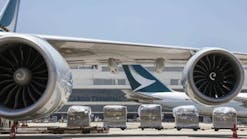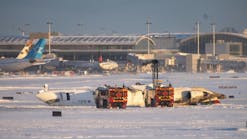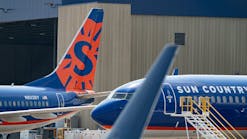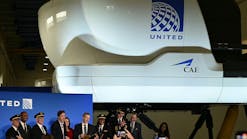Delta Air Lines will turn down a federal loan through the CARES Act and instead take on debt backed by its SkyMiles frequent flier program.
The move allows Atlanta-based Delta to avoid surrendering more control in return for new federal money. It also highlights the airline’s ability to tap capital markets and the continued popularity of credit cards offering frequent flier miles despite a steep drop in air travel.
Delta got $5.4 billion in federal aid through the CARES Act passed by Congress, and had signed a letter of intent giving it the option of also taking a $4.6 billion loan through the federal aid program.
However, the airline said Monday it does not intend to take the loan from the U.S. Department of Treasury. Instead, it will take on an additional $6.5 billion of debt backed by SkyMiles, including rights, intellectual property and other collateral in the frequent flier program.
While taking on a private loan means Delta is mortgaging its frequent flier program, airlines would have to provide the government with warrants, equity or senior debt instruments as a condition of accepting federal loans. That could have given the federal government ownership of shares in Delta, which already provided warrants to the government for about 1% of its stock over five years tied to the $5.4 billion of relief funding.
The terms of the federal loans also would extend restrictions on how much airlines pay executives and restrict their ability to do stock buybacks and pay dividends until a year after the loan has been repaid. The loans are intended to be available to airlines that do not otherwise have credit reasonably available, according to the CARES Act, passed by Congress in March in response to the coronavirus pandemic.
In return for taking more than $5 billion in federal aid earlier this year under the same program, Delta agreed to not lay off workers before October.
The Delta frequent flier program has more than 100 million members and generated $6.1 billion in cash from sales of miles to its SkyMiles credit card partner American Express, SkyTeam airlines and other partners. Those partners give out the Delta miles to their customers as incentives for purchases and other transactions.
Before striking this SkyMiles deal, Delta had built up nearly $16 billion in cash with the help of CARES Act funding and taking on more debt.
But the airline is still burning through about $27 million in cash a day as travel demand remains weak. Air travel dropped nearly 97% in mid-April and is still down by about 67% as many Americans avoid flying during the pandemic.
With the steep drop in travel, Delta saw a 78% decline in miles redeemed in the first half of the year, resulting in a drop in award revenue. However, frequent fliers continued to use their Delta SkyMiles credit cards, and cash from sales to American Express declined only 5%, according to Delta.
Other airlines over the years have tried different models with their frequent flier programs, including spinning off the programs to make them separate businesses. United and American have also recently taken out loans backed by their frequent flier programs.
With the creation of a new SkyMiles subsidiary, Delta will buy miles from the subsidiary to issue to frequent fliers, and the subsidiary will buy seats from Delta when frequent fliers book seats using miles. American Express and other SkyMiles partners will buy miles from the subsidiary to issue to credit card holders.
The SkyMiles program and its partnership with American Express has become a growing contributor to Delta’s business in recent years, with the American Express partnership contributing more than $4 billion to Delta in 2019, up from $2 billion in 2014.
SkyMiles frequent flier members account for more than 60% of Delta’s ticket revenue, according to Delta.
———
©2020 The Atlanta Journal-Constitution (Atlanta, Ga.)
Visit The Atlanta Journal-Constitution (Atlanta, Ga.) at www.ajc.com
Distributed by Tribune Content Agency, LLC.




